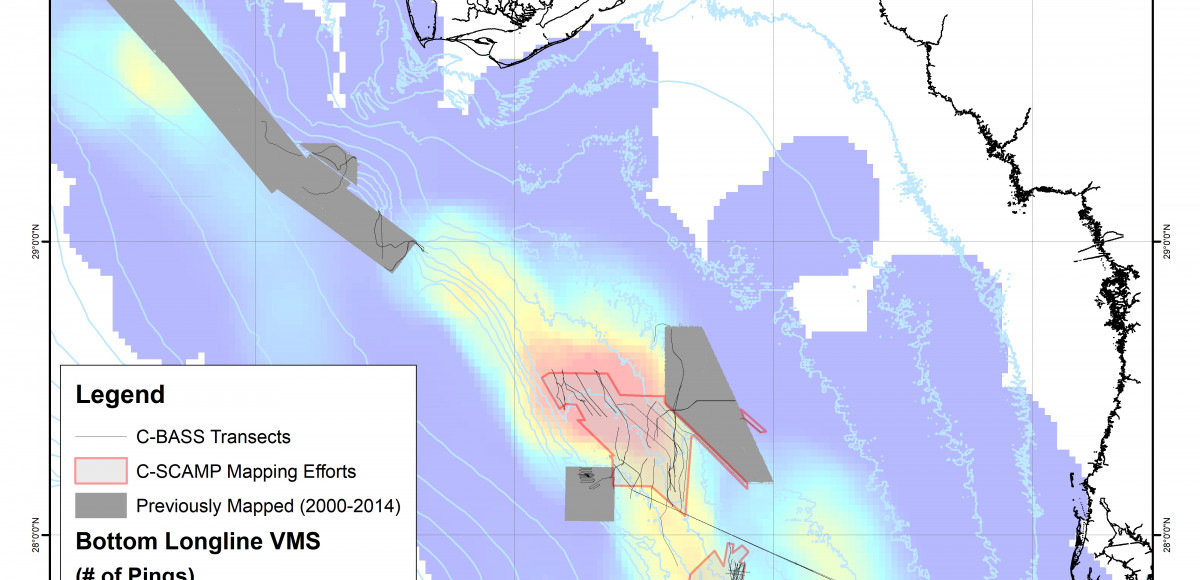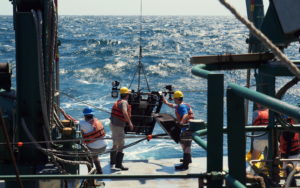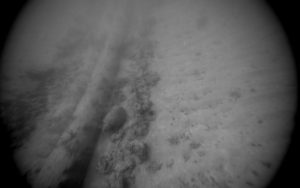
The Continental Shelf Characterization, Assessment and Mapping Project (C-SCAMP) Steering Committee met in February to showcase project successes and discuss next steps. This team of oceanographers, fisheries scientists, geologists, data managers and engineers is adding to the body of knowledge on essential reef fish and sea turtle habitat on the West Florida Shelf (WFS) and has nearly doubled previous mapping efforts in this area.
The project, funded by the National Fish and Wildlife Foundation, set out in 2015 to increase the amount of high resolution bathymetry available for the WFS and to also couple these data with habitat and fish community assessments. Primary investigator Dr. Steve Murawski and co-investigators Chad Lembke (co-chair of the GCOOS glider task team) and Dr. Stan Locker are leading the University of South Florida-based team that is adding to the body of knowledge on essential reef fish and sea turtle habitat on the WFS.
The project employs a custom-made, towed camera called the Camera-Based Assessment Survey System (C-BASS); it’s equipped with multiple cameras that allow for both the sizing of objects and resolution to facilitate reef fish species identifications and habitat classifications. The combination of multibeam mapping and C-BASS imaging —which also has capabilities to collect data on acoustically tagged fishes and environmental parameters such as turbidity, chlorophyll, temperature and salinity — is providing an unprecedented picture of habitat features and species occupation. Moving forward, the goal is to develop models that use backscatter and bathymetry data to accurately predict habitat types and species associations. For more information, please contact program coordinator and project scientist Sarah Grasty at grastys@mail.usf.edu.
















